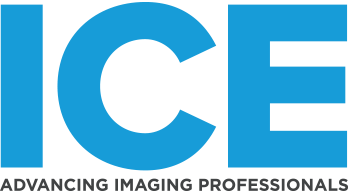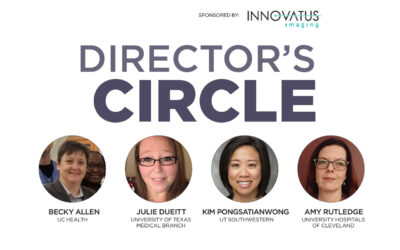
By Daniel Bobinski
 A wise man once told me, “Unless your name is God, you need a mentor or a coach.” He was right. No man is an island, and nobody goes through life without the need for objective input. Good mentors and coaches are powerful assets.
A wise man once told me, “Unless your name is God, you need a mentor or a coach.” He was right. No man is an island, and nobody goes through life without the need for objective input. Good mentors and coaches are powerful assets.
Some think mentoring and coaching is the same thing, but differences exist.
A mentor helps you grow in various aspects of your life, with an agenda set by you. In other words, you are more involved in setting the pace and direction. A mentor often asks probing questions, facilitating your discovery of how you can improve in the areas you want to address. Think of a mentor as someone who facilitates personal or professional development.
“Coach” is a term for someone who focuses more on your performance. A coach usually operates with an organizational focus and helps you improve specific skills or interpersonal relationships that pertain to your job and how your performance impacts your company’s bottom line. Think of a coach as someone who helps you achieve specific workplace objectives and goals.
Some people use the terms interchangeably and, personally, I don’t think it matters which term you use, so long as you understand what you want from the relationship. I think it’s more important to realize that no matter what you call the person helping you, distinct benefits exist for having mentors and coaches.
One question people ask is, “Does your mentor or coach need to be an expert in your field?” The answer is no, your mentor or coach simply needs to be able to help you where you want or need help.
For example, a colleague and I were once asked to meet with the leadership team of a high-profile company that manufactures golf equipment. There had been some growing tension in the executive suite and they wanted someone from outside the organization to provide 1:1 coaching to team members with the goal of improving interpersonal skills.
At the initial meeting, a senior vice president arrogantly sat back and challenged us with “So, what do you guys know about golf clubs?” Without batting an eye, my colleague responded: “Nothing. And we don’t want to know anything about golf clubs. We’re experts in workplace relationships.”
Similarly, a company recently hired me to help a senior vice president develop better interpersonal skills (for privacy’s sake, let’s say they sell widgets). Again, during the vetting process, someone from the leadership team asked what I knew about widgets. I gave a similar answer.
That said, sometimes you want a coach who knows something about your field. A friend of mine used to be on the leadership team for a public utility. He got out of that organization 10 years ago and now works as either a coach or a mentor to other executives in that field, depending on their need.
You might say I’m a little biased, but I believe clear benefits exist for having a mentor or a coach. Here are just a few:
- You gain clarity. Often, we are too close to a situation to see it clearly. Think of it this way: it’s difficult to see your nose because it’s too close to your eyes. But with a trustworthy person sharing insights about what he or she observes, you gain useful perspectives on how to improve. If you value that person’s perspective and are motivated to make improvements, you’re more likely to put forth the effort to make the improvement.
- You have accountability. Without accountability we sometimes end up offering up blame or excuses when things don’t get done. Sometimes both. Because it can be difficult to keep yourself on track, having someone to whom you’re accountable helps you stay on top of those non-urgent but important actions which lead to personal and professional growth.
- Coaching and mentoring is custom tailored to you. You can attend all the workshops and read all the books you want, but they will forever be delivered to a bell curve of people, not specifically to you. With coaching and mentoring relationships, everything is customized to meet your individual needs.
With that, a little vulnerability will be necessary so you can acknowledge and get past some of your weaknesses, but thankfully, it’s not all on your shoulders. A good mentor or coach strives to create a trusting environment. And, through the whole process, your mentor or coach will be helping you capitalize on your unique strengths – something that doesn’t happen in a workshop.
How to find a good mentor or coach
Whether you’re looking for a mentor or coach for yourself or for someone else, start by clarifying in your mind exactly what you want from the relationship. Is it more mentoring, with a focus on personal or professional development, or is it more coaching, where help is needed to achieve specific goals?
The better you can clarify what you want, the easier it will be to identify the right person.
As far as where to look, you can check with people you already know and trust – such as coworkers or a supervisor – and ask if they know anyone. If that produces no results or if you’d prefer working with someone outside your existing circles, coaching organizations may be of help. These companies train and equip people in coaching processes and principles, and their websites usually offer “find a coach” databases.
The nice thing about our modern age is your coach can live in Timbuktu because coaching can happen via telephone or video conference.
Two final pieces of advice. First, anyone can claim the title of coach, so take the time to vet a person’s experience. Second, I recommend finding someone who shares your values. All other things being equal, a mentor or coach who shares your values has a better chance of understanding your mindset and your motivations, which often leads to better results.
Daniel Bobinski, M.Ed. is a best-selling author and a popular trainer on workplace issues. For more than 30 years he’s been working with teams and individuals (1:1 coaching) to help them achieve excellence. He was also teaching Emotional Intelligence since before it was a thing. Reach Daniel on his office phone, 208-375-7606, or through his website, www.MyWorkplaceExcellence.com.








